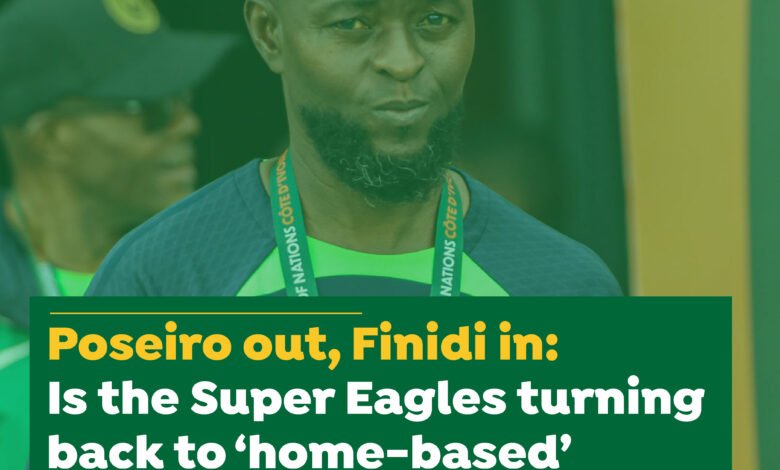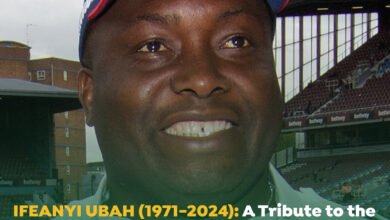
Ex-Nigerian international Finidi George has been tapped to succeed Portuguese Jose Poseiro, whose tenure as the manager of the Super Eagles came to an end months ago with the expiration of his contract and the refusal of the NFF to renew it.
Poseiro’s time in charge of the Super Eagles continues to divide opinions, as some point to his lack of any major victory as evidence of failure, while others insist that Nigeria’s progress to the final of the last AFCON, before disappointingly losing to the host, was an overachievement.
Nevertheless, the curtain has been closed on his chapter, and a new page has been opened to another manager. Finidi George’s emergence, albeit temporary, has raised eyebrows about whether the NFF has now decided in favor of home-based managers for the future, effectively accepting the argument of those who deem foreign managers a costly adventure that yields little in returns.
It is not an argument without basis. The last time the Super Eagles won a major trophy in 2013, the AFCON in South Africa, the squad was led by the late Stephen Keshi, a home-based manager. Additionally, the squad had a notable representation of players who plied their trade in the country’s domestic league, with the goal that won them the final coming from Sunday Mba, a local player.
However, the argument is undermined by the lack of technical expertise often displayed by some of the home-based managers and their recorded inability to summon an adequate response to the technical nous of some of the best in the game when the Super Eagles go against them in major competitions such as the FIFA World Cup.
Finidi George, the interim manager, is an iconic football figure and a local hero. His selection is likely informed by his remarkable triumph at Enyimba Football Club, where he won the local league title last year. But the problem, according to some, is that this is where his experience ends. And far from being the exception, it is the norm with Nigerian-based managers who fail to expand their horizons but only seem to settle for jobs in the country while waiting for their turn to get a shot at leading the Super Eagles, riding on the wave of the emotional argument for a local manager.
For an NFF that makes headlines more for unpaid salaries and controversial management of bonuses and development funds, dealing with a local manager is an easier prospect. Perhaps that explains the choice of them when the chips are down and also the reason for their lack of success when measured against some of the foreign managers that have come and gone. Some criticize the disdain often shown to local managers, who are sometimes owed for months, as a manifestation of the general bias for foreign items. A bias informed by insecurity and our colonial past.
Others say the lack of respect is due to the comparatively poor experience of the local managers and urge them to venture out and prove themselves.
Finidi George is relatively new to the managerial scene at the top level, even though he was a member of Poseiro’s technical crew for 22 months. His success with Enyimba suggests he is familiar with some of the best talents available in the country and knows how to motivate them to win. But it remains unclear how he would manage the egos of the foreign-based stars whose stock continues to rise. The friendlies lined up with Ghana and Mali will provide a peek into the future if the NFF decides to stick with him.
But the larger query is whether or not we are returning to ‘Naija-made’ managers, and whether or not it is a necessary shift as we search for the next title after Sunday Mba last united the country with shouts of ‘Goal’ in that unforgettable game against Ivory Coast.





